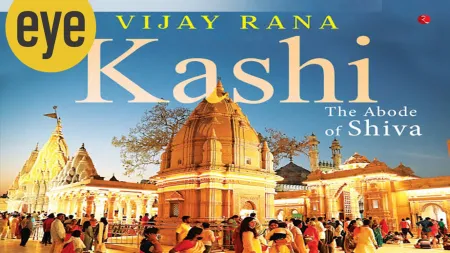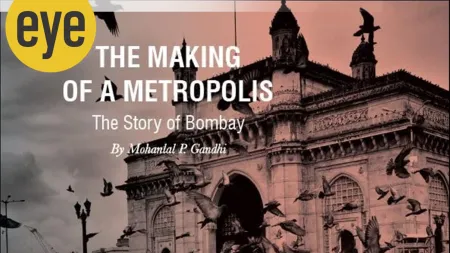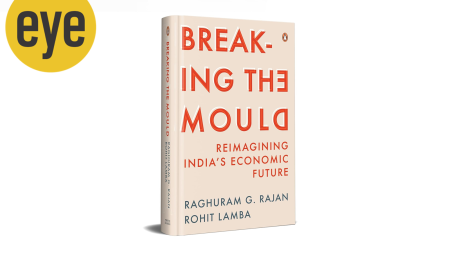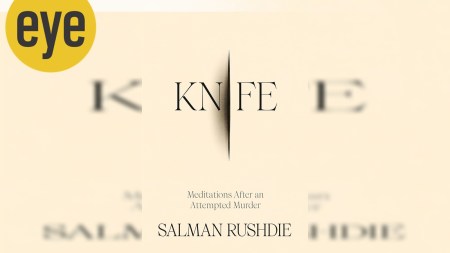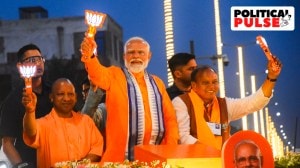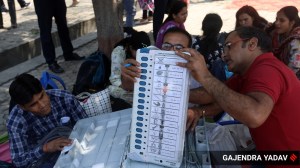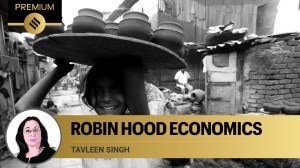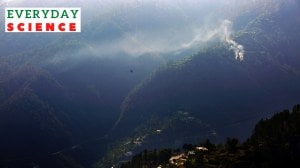- India
- International
Khalistan and the Sikh Diaspora: Why a small but loud movement continues to survive in Canada
The Indian consulate building in San Francisco was set on fire recently, purportedly by Khalistan supporters. Last month, a tableau ‘celebrating’ the assassination of Indira Gandhi by her Sikh bodyguards went around the city of Brampton in Canada.
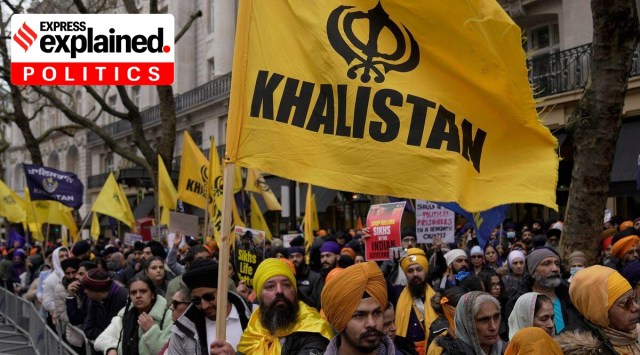 While the movement does not enjoy much traction in India, it lives on amongst the Sikh diaspora in countries like Canada, the US and the UK. (Photo: AP/File/Representational)
While the movement does not enjoy much traction in India, it lives on amongst the Sikh diaspora in countries like Canada, the US and the UK. (Photo: AP/File/Representational) The US on Monday condemned a recent attack on the Indian consulate building in San Francisco.
“The US strongly condemns the reported vandalism and attempted arson against the Indian Consulate in San Francisco on Saturday. Vandalism or violence against diplomatic facilities or foreign diplomats in the US is a criminal offense,” State Department spokesperson Matthew Miller said in a tweet. The consulate was set on fire early on Sunday morning. In June, Khalistan supporters had organised a parade in Ontario, Canada, which appeared to celebrate the assassination of former Prime Minister Indira Gandhi. Our explainer on Khalistan sympathisers in the Sikh diaspora, done in June, follows:
The 39th anniversary of Operation Bluestar, the controversial Army action to flush out Khalistani militants from the Golden Temple in Amritsar, was observed on June 6. In the lead up to it, on June 4, a parade was organised in Brampton, Ontario, in Canada.
A tableau in the 5 km-long parade seemed to celebrate the assassination of former Prime Minister Indira Gandhi – a female figure was shown in a blood-stained white saree, with the hands up, as turbaned men pointed guns at her. A poster behind the scene read “Revenge for the attack on Darbar Sahib”.
The tableau drew strong reactions from India, with External Affairs Minister S Jaishankar registering his disapproval.

“Frankly, we are at a loss to understand other than the requirements of vote bank politics why anybody would do this … I think there is a larger underlying issue about the space which is given to separatists, to extremists, to people who advocate violence. I think it is not good for relationships, not good for Canada,” Jaishankar told reporters in New Delhi on Thursday.
#WATCH | EAM Dr S Jaishankar speaks on reports of late PM Indira Gandhi’s assassination celebration in Canada; says, “…I think there is a bigger issue involved…Frankly, we are at a loss to understand other than the requirements of vote bank politics why anybody would do… pic.twitter.com/VsNP82T1Fb
— ANI (@ANI) June 8, 2023
Congress leader Milind Deora posted on social media: “As an Indian, I’m appalled by the 5 km-long parade which took place in the city of Brampton, Canada, depicting the assassination of Indira Gandhi,” Deora said. “It’s not about taking sides, it’s about respect for a nation’s history and the pain caused by its Prime Minister’s assassination. This extremism deserves universal condemnation and a united response.”
As an Indian, I’m appalled by the 5km-long #parade which took place in the city of Brampton, Canada, depicting the assassination of #IndiraGandhi.
It’s not about taking sides, it’s about respect for a nation’s history & the pain caused by its Prime Minister’s assassination.… pic.twitter.com/zLRbTYhRAE
— Milind Deora | मिलिंद देवरा ☮️ (@milinddeora) June 7, 2023
Khalistan and Canada
This is not the first time that Khalistan has figured in an India-Canada context. Nor is this the first time that the assassination of Indira Gandhi has been celebrated in Canada.
In 2002, Toronto-based Punjabi-language weekly Sanjh Savera greeted Indira’s death anniversary with a cover illustration of her murder and a headline urging readers to ‘Honour the martyrs who killed the sinner’. The magazine received government advertisements, and is now a prominent daily in Canada.
Last year in Brampton, which is home to Canada’s largest Sikh population, a pro-Khalistan organisation known as Sikhs for Justice (SFJ) held a so-called “referendum” on Khalistan. The organisers claimed that over 100,000 people had turned up in support of Khalistan.
The event was followed by a strong rebuke by the Government of India, which urged Canada to curtail any “anti-India activities”.
The government also asked Canada to designate as terrorists all those individuals who were so designated in India. SFJ is an outlawed organisation in India, and has been linked to the rocket propelled grenade (RPG) attack at Punjab Intelligence headquarters in Mohali in May last year.
Canada has for long been considered a safe haven for Khalistan supporters and militant voices accused of terrorism in India. “The meek Canadian response to the Khalistani challenge was a frequent target of Indian politicians as far back as 1982, when Prime Minister Indira Gandhi complained about it to Prime Minister Pierre Trudeau,” Terry Milewski wrote in his book Blood for Blood: Fifty Years of the Global Khalistan Project (2021).
Pierre Trudeau, who was Prime Minister from 1968 to 1979 and then from 1980 to 1984, was the father of Canada’s current leader, Justin Trudeau.
“It is a question often asked by Indians: why do Canadian politicians pander to Sikh extremists? The short answer is that it is not easy to look out at a throng of 100,000 on Vaisakhi Day, knowing they might vote for you if you keep your mouth shut, and then to open it instead and risk losing the votes,” Milewski wrote.
As per the 2021 Canadian census, Sikhs account for 2.1 per cent of Canada’s population, and are the country’s fastest growing religious group. After India, Canada is home to the largest population of Sikhs in the world.
Today, Sikhs lawmakers and officials serve at all levels of Canada’s government, and their burgeoning population is one of the most important political constituencies in the country. In 2017, Jagmeet Singh, 39, became the first Sikh leader of a major Canadian political party when he took the reins of the left-leaning New Democratic Party (NDP).
However, not all Canadian Sikhs are Khalistan supporters, and for most in the Sikh diaspora, Khalistan is not a “hot” issue.
“Canadian leaders do not want to lose Sikh votes but they wrongly think the loud minority of Khalistanis are all Sikhs of Canada,” Milewski told DW last year.
A global Khalistan movement
The Khalistan movement has been a global movement from its inception.
The first declaration for a separate Sikh state was made in the United States: on October 12, 1971, an advertisement in The New York Times proclaimed the birth of Khalistan. “Today we are launching the final crusade till victory is achieved … We are a nation in our own right”, it said.
At the height of the insurgency in Punjab, Pakistan and China were frequently involved in providing material support to Khalistani militants. The Indian Army found the militants holed up in the Golden Temple to be in possession of Chinese-made RPGs, and cited the use of these RPGs as the reason for the use of tanks in the operation.
Today, the movement finds little resonance in the Sikh population within India. But it survives in parts of the Sikh diaspora in countries like Canada, the US, and the UK. Milewski located the support for Khalistan within the diaspora in its lack of connection to the ground realities of Punjab.
The diaspora comprises people “who chose to leave”, including those who left during the 1980s, when the movement was at its peak and the Indian state was extremely hard on Khalistani separatists, with a lot of extra-judicial arrests and killings. The memories of those times have kept the movement alive among these people, even though the ground realities of Punjab are very different today.
However, even within the diaspora, support has dwindled over the years. “There is a small minority that is clinging to the past, and that small minority remains significant not because of popular support, but rather because they are trying to keep up their political influence with various political parties both from the left and the right. They can rally supporters en masse who will vote for the politicians who can sing their song,” Milewski told The Indian Express in 2021.
As a new generation of Sikhs grow up in foreign shores with little personal memory of India, the movement is likely to further dwindle.
Milewski said, “(Today) The Khalistan movement is not about popular support … it is about geo-politics. Countries like China and Pakistan can well tolerate, subsidise and assist in various ways the Khalistan movement on the basis that it is making trouble for their enemies in India.”
More Explained
EXPRESS OPINION
Apr 28: Latest News
- 01
- 02
- 03
- 04
- 05





